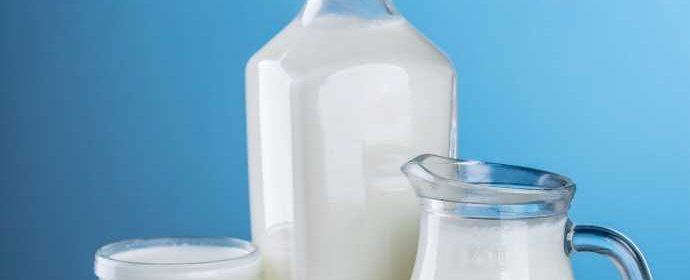Intake of phosphates: Babies, infants and children can exceed the health guidance values

Phosphates are essential substances that occur naturally in the human body and make up a considerable portion of our nutrition. They occur in almost all foods, especially those high in protein, such as cheese, cold cuts and meat. A certain group of phosphates is authorised as food additives in the European Union. They are added to a large number of foods to perform various technological functions, e.g. as acidity regulators. These include soft drinks, especially cola beverages, whipped cream and cream products, milk drinks, milk powder and coffee whitener, as well as meat products.
Within the scope of a re-evaluation published on 12 June 2019, the European Food Safety Authority (EFSA) derived an acceptable daily intake (ADI) for phosphates. The ADI value of 40 mg/kg body weight per day expressed as phosphorus applies to the uptake of phosphorus from foods which can naturally contain phosphates and those to which phosphates can be added as a food additives.
EFSA derived the group ADI of 40 mg/kg body weight per day for healthy adults. It does not apply to people with a moderate to severe impairment of kidney function who constitutes a special risk group.
Infants, toddlers and children can exceed this value even with average consumption quantities. This also applies to adolescents with a phosphate-rich diet.
The acceptable daily intake for phosphate is the estimated maximum amount to which individuals may be exposed daily over their lifetimes without appreciable health risk. From a toxicological point of view therefore, total intake of phosphate should not result in an exceedance of the acceptable daily intake on a regular basis. EFSA recommends the introduction of maximum levels to reduce the levels of phosphates used as additives in food supplements. The European Commission is considering measures to lower phosphate levels in food. The BfR agrees with EFSA’s scientific assessment.
Consumers cannot recognise how much phosphate is contained in unprocessed foods. For processed foods, the list of ingredients gives information on whether food additives containing phosphates are contained. EFSA estimates that food additives account for between 6 and 30 percent of average total phosphorus intake.
Phosphates are vital for all living organisms. They are essential substances that occur naturally in the human body and make up a considerable portion of our nutrition. They occur in almost all foods, especially those high in protein, such as cheese, cold cuts and meat. Nuts, legumes, fruit and vegetables can also contain larger quantities of phosphates. A certain group of phosphates is authorised as food additives in the European Union. They are added to a large number of foods to perform various technological functions, e.g. as acidity regulators. Examples of foods with phosphate additives are refreshing drinks, especially cola, whipped cream and cream products, milk drinks, milk powder and coffee whitener, as well as meat products.
The EFSA opinion deals with the re-evaluation of phosphoric acid, phosphates and di-, triand polyphosphates (E 338-341, E 343, E 450-452) when used as food additives. Phosphates are authorised as food additives in the European Union (EU) according to Regulation (EC) No. 1333/2008.
Phosphates have a low acute oral toxicity and according to the latest available scientific knowledge, raise no concerns with regard to genotoxicity and carcinogenicity. In toxicity studies, the only undesired (adverse) effects of phosphates administered in high doses are calcification of the kidneys and tubularnephropathy. The epidemiological studies examined found no consistent associations between phosphate intake and cardiovascular events.
EFSA derived an acceptable daily intake (ADI) of 40 mg/kg body weight per day expressed as phosphorus as health-based guidance value. This guidance value offers protection to healthy adults because it is below the dosages at which clinically relevant undesired (adverse) effects occur. This value does not apply to people with a moderate to severe reduction of their kidney function, however.
Infants, toddlers and children can exceed this ADI value even with average consumption quantities. This also applies to adolescents with a phosphate-rich diet. The data give no cause for concern about the safety of infants below 16 weeks of age who consume formula and food for special medical purposes containing phosphates.
Phosphates can currently be used quantum satis (i.e. as much as technologically necessary) as additives in food supplements. EFSA noted that for those above the age of 3 years who take such supplements regularly, estimated exposure may exceed the ADI at levels associated with risks for kidney function. On the basis of the exposure assessment, EFSA recommends the introduction of maximum levels for phosphates used as additives in food supplements.
EFSA conducted a public consultation in order to gain information relevant for the reevaluation of food additives containing phosphates from groups with an interest in the areas of nephrology, mineral metabolism, cardiovascular and nutrition medicine. The EFSA scientists took these comments and remarks into account when preparing this scientific opinion.
EFSA opinions are usually given due consideration initially by the risk managers in a work group of the European Commission and then if necessary in the Standing Committee on Plants, Animals, Food and Feed (PAFF Committee). It is up to risk management to decide whether measures have to be taken or not and what these measures are to be. They can include changes to the conditions of use, for example, as well as restriction of use.
Source: Read Full Article
